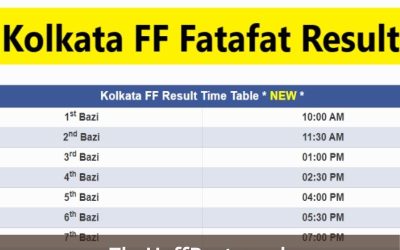The Impact of Commodities Trading on Share Trading Platforms
When refined items are produced, raw materials or standardized resources having intrinsic worth are called commodities. It can be categorized as any type of transportable goods that can be purchased and sold, with the exception of money and claims that are subject to litigation and share trading platforms. Even though a commodity’s quality may vary depending on who produces it, there must be some significant consistency.
There are hard commodities and soft commodities, two different sorts of commodities, available on the market. Soft commodities are mostly utilized for initial consumption while hard commodities are frequently employed as components in the production of other items and the delivery of services. Hard commodities are defined as inputs like metals and minerals, whereas soft commodities are things like rice and wheat that come from agriculture.
On the spot market or exchanges, commodities are traded. For the commodity trading to be able to trade, they need to adhere to the minimum requirements imposed by the exchanges. The spot market or derivatives like options or futures are the two alternatives available to traders for purchasing these commodities. A portfolio can diversify through commodity trading in addition to standard securities. Additionally, investors engage in commodities trading during times of market turbulence since commodity prices move the other way from stock prices.
Types Of Commodities Market
Over 100 commodities are traded on the roughly fifty largest commodity exchanges in the world.Four broad categories of commodities are available for trading:
Metal: A wide range of metals, including those used in manufacturing and construction such as iron, copper, aluminum, and nickel, are available for trade in the market alongside precious metals like gold, silver, and platinum.
Energy goods: Items used in homes and businesses that use energy are traded in large quantities. Oils and natural gas fall under this category. Uranium, ethanol, coal, and electricity are some of the other energy-related commodities that are traded.
Agriculture-related products: A wide range of agricultural and livestock products are traded on the commodity market.
Commodity Trading
The commodities exchange is the organization that decides, controls, and upholds the laws governing the trade of commodities, including standardized commodity contracts and other associated financial products. Commodities and derivatives are traded in this organized market.
Commodity trading is possible in India on any of the more than 20 exchanges that make it possible, with the Securities and Exchange Board of India acting as the market regulator. In order to provide a uniform regulatory framework for commercial investing, SEBI and the Forward Markets Commission, which had previously regulated the sector, were eventually amalgamated in 2015.
How The Commodity Market Work
For example, let’s say you paid Rs. 72,000 for every 100 grams of gold in a futures contract on the MCX. 3.5% is the gold MCX margin. Therefore, your gold will cost you Rs. 2,520. Consider a scenario where the price of gold rises the following day to Rs. 73,000 for 100 g. Your linked bank account for the commodity market will receive Rs 1,000 in credit. Think about it falling to Rs. 72,500 the following day. In consequence, your bank account will be debited by Rs. 500.
Trading in commodities carries a higher level of risk due to the frequent market swings, even though you have access to bigger leverage.
Type Of Commodities Market
Either spot markets or derivatives markets are typically where commodities are traded.
Other names for spot markets include “cash markets” or “physical markets,” when traders exchange tangible commodities for prompt delivery.
These derivatives contracts use the spot market as the underlying asset and provide the owner ownership of the same at a future time for a price that is agreed upon in the present. Futures and forwards are two types of commodity derivatives that are traded on the derivatives markets in India. The commodity or item is physically delivered at the time the contracts expire.
Advantage
Protection from a stock market crash, inflation, and other black swan events When inflation increases, it affects businesses’ ability to turn a profit and makes borrowing more expensive. As a result, stock prices decrease when inflation is strong. A rise in the cost of goods, on the other hand, would result in a rise in the price of basic goods and raw materials, which would drive up the price of commodities. Consequently, commodity trading turns a profit when inflation is on the rise.
High-leverage facility: Investing in the commodity market will increase traders’ possibility for profit. By providing a 5–10 percent margin, it enables traders to hold a sizeable position in the market. In this manner, the potential for profit can rise exponentially even in the case of a small price increase. Although the minimum margin requirement varies from commodity to commodity, it is nonetheless lower than the margin required for equities investments. Controlled full-size contracts and accounts with a low minimum deposit are available.
Diversification: Due to the low to negative correlation between raw materials and stocks, commodities give investors the opportunity to diversify their holdings.
Wrapping Up
Basically, commodities are raw materials or resources that are utilized to create finished things. Contrary to goods, commodities are standardized; two equal units of a given commodity will be the same regardless of where it was produced or from where it came. Steel, cotton, silver, grains, pulses, natural gas, crude oil, and natural gas are a few examples of commodities.











